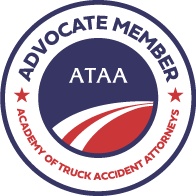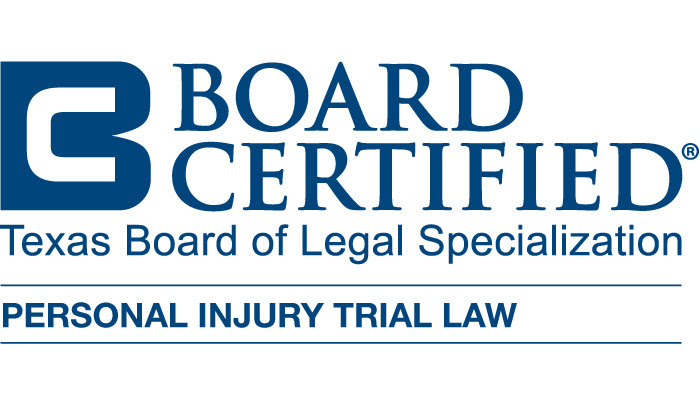Pedestrian accidents can have life-altering consequences. In Texas, where streets and busy intersections are common, pedestrians are at risk every time they cross the road. When a pedestrian is struck by a vehicle, the aftermath can be overwhelming, not just physically and emotionally but also legally. One of the most daunting tasks that follow a pedestrian accident is dealing with insurance companies. Understanding the steps to take when managing insurance claims can make a significant difference in securing the compensation you deserve.


Seek Immediate Medical Attention
The first and most crucial step after a pedestrian accident is to seek medical attention. Even if you feel fine initially, it is essential to have a healthcare professional evaluate your condition. Some injuries, such as internal bleeding, traumatic brain injuries, or soft tissue damage, may not present symptoms immediately. By getting a thorough medical examination, you ensure that any injuries are documented, which is vital when dealing with insurance companies. Your medical records will serve as critical evidence when filing a claim, helping to establish the severity of your injuries and the necessity for medical treatment.
Additionally, following your doctor’s advice and attending all recommended follow-up appointments is essential. Insurance companies often scrutinize claimants’ medical histories to find reasons to reduce or deny claims. By adhering to your medical treatment plan, you demonstrate that you are taking your recovery seriously, which strengthens your case when negotiating with insurance adjusters.
My focus is to give a voice to families who have suffered a wrongful death or a serious injury to a family member caused by an 18-Wheeler, commercial truck, or a drunk driver. Contact us today, we can help you.Helping Injury Victims for Over 25 Years
Document the Accident Scene and Gather Evidence
As soon as you are able, or if possible, immediately after the accident, it is important to document the scene. This includes taking photographs of the location, the vehicle involved, any visible injuries, and any property damage. If there are skid marks, debris, or traffic signals, capture these elements as well. Photographs can provide a clear picture of what happened and can be instrumental when insurance companies assess liability.
In addition to visual documentation, gather contact information from any witnesses who may have seen the accident. Eyewitness testimony can be invaluable in corroborating your version of events, especially if there is a dispute about who was at fault. If law enforcement responded to the scene, obtain a copy of the police report. This report typically includes details about the accident, statements from both parties, and the officer’s assessment of fault, all of which can support your claim.
Notify Your Insurance Company
After seeking medical attention and documenting the accident, the next step is to notify your insurance company about the incident. Even if the accident was not your fault, it is essential to inform your insurer promptly. Failing to report the accident in a timely manner could lead to complications with your claim. When speaking with your insurance company, provide them with factual information about the accident without speculating or admitting fault. Insurance adjusters are trained to look for any statements that could be used to minimize or deny your claim, so it is important to be cautious in your communications.
While notifying your insurance company is necessary, you should be aware that their primary goal is to protect their financial interests. They may try to settle your claim quickly for an amount that is far less than what you deserve. Therefore, it is advisable to consult with a legal professional before accepting any offers or signing any documents provided by the insurance company.
Avoid Giving Recorded Statements Without Legal Counsel
Insurance adjusters may ask you to provide a recorded statement about the accident. It is crucial to understand that you are not obligated to give a recorded statement, especially without legal representation. These statements can be used against you to diminish your claim. Insurance companies may try to twist your words or use your statements out of context to argue that you were partially or entirely at fault for the accident.
Before agreeing to any recorded statement, it is wise to consult with a legal professional who can guide you on how to proceed. A lawyer can help you understand your rights and ensure that your statements are accurate and do not jeopardize your claim.
Understand the Insurance Company’s Tactics
Insurance companies are for-profit businesses, and their goal is to minimize payouts on claims. They may employ various tactics to achieve this, such as delaying the claims process, disputing the extent of your injuries, or offering a lowball settlement. It is important to be aware of these tactics so that you can protect yourself during the negotiation process.
One common tactic is to dispute liability. The insurance company may argue that you were at fault or that you contributed to the accident in some way. In Texas, the modified comparative negligence rule applies, meaning that if you are found to be more than 50% at fault for the accident, you may be barred from recovering any compensation. Even if you are found partially at fault, your compensation will be reduced by your percentage of fault. Understanding this rule is crucial when dealing with insurance companies, as it can significantly impact the outcome of your claim.
Another tactic is to downplay the severity of your injuries. Insurance adjusters may question the necessity of certain medical treatments or argue that your injuries were pre-existing or not as serious as you claim. To counter this, it is essential to have thorough medical documentation and, if necessary, testimony from healthcare providers who can confirm the extent of your injuries and the impact they have on your life.
Related Videos
Choosing a Personal Injury Attorney
Types of Compensation in a Truck Accident Claim
Negotiate a Fair Settlement
When the insurance company offers a settlement, it is essential to evaluate whether the amount is fair and adequate to cover all your damages. This includes not only your medical expenses but also lost wages, pain and suffering, and any other losses you have incurred as a result of the accident. It is important to remember that the first offer is often not the best offer. Insurance companies may start with a low settlement amount in the hopes that you will accept it out of desperation or a desire to resolve the matter quickly.
Negotiating with insurance companies can be challenging, especially if you are not familiar with the process. This is where legal representation can make a significant difference. A lawyer with experience in pedestrian accident cases can assess the true value of your claim, taking into account all factors such as the long-term impact of your injuries, future medical expenses, and non-economic damages like pain and suffering. With this information, your lawyer can negotiate with the insurance company on your behalf to secure a settlement that truly reflects the extent of your losses.
Consider Legal Representation
While it is possible to handle an insurance claim on your own, having legal representation can greatly increase your chances of obtaining a fair outcome. A legal professional can guide you through the complex legal process, ensure that your rights are protected, and advocate on your behalf in negotiations with the insurance company.
In pedestrian accident cases, where the injuries can be severe and the stakes are high, having a lawyer by your side can make a significant difference. Your lawyer can help you navigate the challenges of dealing with insurance companies, gather the necessary evidence to support your claim, and ensure that you receive the compensation you deserve.
If the insurance company refuses to offer a fair settlement, your lawyer can also advise you on the option of pursuing a lawsuit. While most cases are settled out of court, having the option to take legal action can provide additional leverage during negotiations.
Be Mindful of Time Limits
In Texas, there are strict time limits, known as statutes of limitations, for filing a personal injury claim. For pedestrian accidents, the statute of limitations is generally two years from the date of the accident. Failing to file a claim within this time frame can result in losing your right to seek compensation.
It is important to be aware of these deadlines and to take action as soon as possible. The sooner you begin the process, the more time you and your lawyer will have to gather evidence, build a strong case, and negotiate with the insurance company.
Dealing with insurance companies after a pedestrian accident in Texas can be an overwhelming and complex process. It is crucial to take the right steps to protect your rights and ensure that you receive the compensation you deserve. If you or a loved one has been injured in a pedestrian accident, seeking legal assistance can make a significant difference in the outcome of your case.
At Willumsen Law Firm, P.C., our legal team is dedicated to helping accident victims navigate the challenges of dealing with insurance companies. We understand the tactics that insurance companies use and have the experience needed to advocate on your behalf. Contact us today to discuss your case and learn how we can assist you in securing the compensation you deserve. Your rights and recovery are our top priority.



